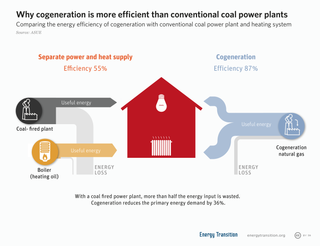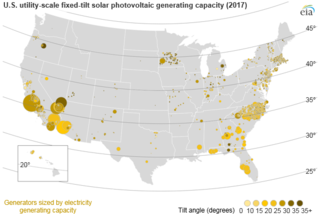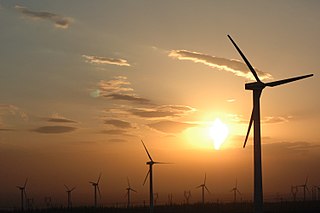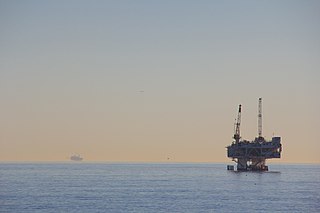Related Research Articles

Citgo Petroleum Corporation is a United States–based refiner, transporter and marketer of transportation fuels, lubricants, petrochemicals and other industrial products. Headquartered in the Energy Corridor area of Houston, it is majority-owned by PDVSA, a state-owned company of the Venezuelan government.

Joseph Patrick Kennedy II is an American businessman, Democratic politician, and a member of the Kennedy family. He is a son of former United States Senator Robert F. Kennedy and Ethel Kennedy, and he is also a nephew of former U.S. President John F. Kennedy.
Eversource Energy is a publicly traded, Fortune 500 energy company headquartered in Hartford, Connecticut, and Boston, Massachusetts, with several regulated subsidiaries offering retail electricity, natural gas service and water service to approximately 4 million customers in Connecticut, Massachusetts, and New Hampshire.

Cogeneration or combined heat and power (CHP) is the use of a heat engine or power station to generate electricity and useful heat at the same time.
Petróleos de Venezuela, S.A. is the Venezuelan state-owned oil and natural gas company. It has activities in exploration, production, refining and exporting oil as well as exploration and production of natural gas. Since its founding on 1 January 1976 with the nationalization of the Venezuelan oil industry, PDVSA has dominated the oil industry of Venezuela, the world's fifth largest oil exporter.

India is the third largest producer of electricity in the world. The national electric grid in India has an installed capacity of 403.759 GW as of 30 June 2022. Renewable power plants, which also include large hydroelectric plants, constitute 39.2% of total installed capacity. During the fiscal year (FY) 2019–20, the gross electricity generated by utilities in India was 1,383.5 TWh and the total electricity generation in the country was 1,598 TWh. The gross electricity consumption in FY2019 was 1,208 kWh per capita. In FY2015, electric energy consumption in agriculture was recorded as being the highest (17.89%) worldwide. The per capita electricity consumption is low compared to most other countries despite India having a low electricity tariff.

District heating is a system for distributing heat generated in a centralized location through a system of insulated pipes for residential and commercial heating requirements such as space heating and water heating. The heat is often obtained from a cogeneration plant burning fossil fuels or biomass, but heat-only boiler stations, geothermal heating, heat pumps and central solar heating are also used, as well as heat waste from factories and nuclear power electricity generation. District heating plants can provide higher efficiencies and better pollution control than localized boilers. According to some research, district heating with combined heat and power (CHPDH) is the cheapest method of cutting carbon emissions, and has one of the lowest carbon footprints of all fossil generation plants.

Constellation Energy Corporation is an energy company headquartered in Baltimore, Maryland, United States. The company provides electric power, natural gas, and energy management services. It has approximately two million customers across the continental United States.

The energy policy of the United States is determined by federal, state, and local entities. It addresses issues of energy production, distribution, consumption, and modes of use, such as building codes, mileage standards, and commuting policies. Energy policy may be addressed via include legislation, regulation, court decisions, public participation, and other techniques.

Enmax Corporation is a vertically integrated utility that generates and distributes electricity, natural gas, renewable energy, and value-added services to customers in Alberta, Canada.

The potential for exploiting geothermal energy in the United Kingdom on a commercial basis was initially examined by the Department of Energy in the wake of the 1973 oil crisis. Several regions of the country were identified, but interest in developing them was lost as petroleum prices fell. Although the UK is not actively volcanic, a large heat resource is potentially available via shallow geothermal ground source heat pumps, shallow aquifers and deep saline aquifers in the mesozoic basins of the UK. Geothermal energy is plentiful beneath the UK, although it is not readily accessible currently except in specific locations.

According to preliminary data from the US Energy Information Administration, renewable energy accounted for about 12.6% of total primary energy consumption and about 19.8% of the domestically produced electricity in the United States in 2020.

Renewable energy in Finland grew to 38.7% of total final energy consumption by year end 2014, achieving joint second position with Latvia in terms of renewable energy consumption by share amongst the EU-28 countries, behind its neighbour Sweden in first position on a 52.6% share. The 2014 share in Finland breaks down as renewable energy providing 52% of the heating and cooling sector, 31.4% of the electricity sector and 21.6% of the transport sector. By 2014, Finland had already exceeded its 2020 target for renewable energy use under the EU renewable energy directive as shown in the table of country targets.

Dominion Energy, Inc., commonly referred to as Dominion, is a North American power and energy company headquartered in Richmond, Virginia that supplies electricity in parts of Virginia, North Carolina, and South Carolina and supplies natural gas to parts of Utah, Idaho and Wyoming, West Virginia, Ohio, Pennsylvania, North Carolina, South Carolina, and Georgia. Dominion also has generation facilities in Indiana, Illinois, Connecticut, and Rhode Island.

The power sector in the Dominican Republic has traditionally been, and still is, a bottleneck to the country's economic growth. A prolonged electricity crisis and ineffective remedial measures have led to a vicious cycle of regular blackouts, high operating costs of the distribution companies, large losses including electricity theft through illegal connections, high retail tariffs to cover these inefficiencies, low bill collection rates, a significant fiscal burden for the government through direct and indirect subsidies, and very high costs for consumers as many of them have to rely on expensive alternative self-generated electricity. According to the World Bank, the revitalization of the Dominican economy depends greatly on a sound reform of the sector.

Solar power includes solar farms as well as local distributed generation, mostly on rooftops and increasingly from community solar arrays. In 2021, utility-scale solar power generated 115 terawatt-hours (TWh), or 2.8% of electricity in the United States. Total solar generation that year, including estimated small-scale photovoltaic generation, was 164 TWh.

Renewable energy in developing countries is an increasingly used alternative to fossil fuel energy, as these countries scale up their energy supplies and address energy poverty. Renewable energy technology was once seen as unaffordable for developing countries. However, since 2015, investment in non-hydro renewable energy has been higher in developing countries than in developed countries, and comprised 54% of global renewable energy investment in 2019. The International Energy Agency forecasts that renewable energy will provide the majority of energy supply growth through 2030 in Africa and Central and South America, and 42% of supply growth in China.

As of 2019, renewable energy technologies provide about 17.3% of Canada's total primary energy supply. For electricity renewables provide 67%, with 15% from nuclear and 18% from hydrocarbons.

Energy in California is a major area of the economy of California. California is the state with the largest population and the largest economy in the United States. It is second in energy consumption after Texas. As of 2018, per capita consumption was the fourth-lowest in the United States partially because of the mild climate and energy efficiency programs.
The U.S. state of Arkansas is a significant producer of natural gas and a minor producer of petroleum.
References
- ↑ "Corporate History". 30 November 2013.
- ↑ "Ninth Annual CITGO-Venezuela Heating Oil Program to Warm Thousands of Families During Cold Winter Months". prnewswire.com. PR Newswire. 5 February 2014. Retrieved 11 February 2014.
- ↑ Sharp, David. "Venezuela's troubles imperil Kennedy's oil charity". Boston Globe. Retrieved 29 January 2019.
- ↑ Payne, Nico (15 November 2017). "IID moves forward with solar program negotiations". KYMA. Retrieved 5 June 2018.
- ↑ Castillo, Amaris. "Citizens Energy, towns celebrate new solar array". Lowell Sun . Retrieved 5 June 2018.
- ↑ "Granite State Power Link application for U.S. presidential permit submitted". vtdigger.org. Retrieved 5 June 2018.